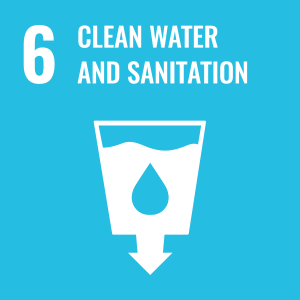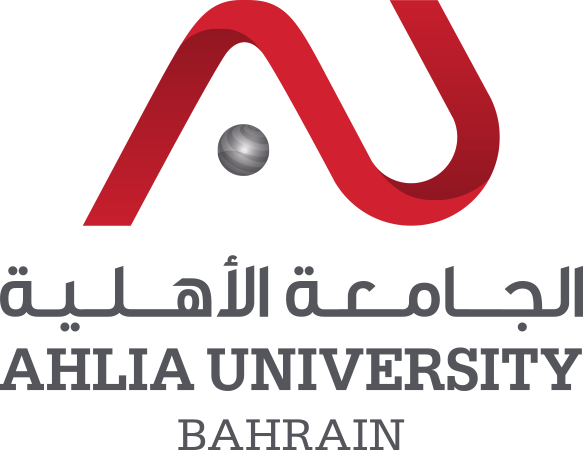
Goal 6
SDG 6: Clean Water and Sanitation
SDG 6: Clean Water and Sanitation at Ahlia University – Sustainability Report
Ahlia University in Bahrain is committed to Sustainable Development Goal 6 (Clean Water and Sanitation) through comprehensive initiatives in water management, sanitation, policy, community engagement, and research. This report outlines Ahlia’s on-campus infrastructure and strategies for water conservation, its provision of safe sanitation facilities, relevant institutional policies, community outreach programs, research activities, contributions to Bahrain’s water challenges, and future plans. All information is drawn from verifiable sources (university documents and credible media) to meet THE Impact Rankings standards in demonstrating Ahlia University’s impact on SDG 6.
On-Campus Water Management Infrastructure and Strategies
Ahlia University employs a range of water-saving technologies and practices on campus to manage water use efficiently. The campus cleaning procedures use high-efficiency equipment that minimizes water consumption – for example, mechanized cleaning machines require about 80% less water than conventional methods ahlia.edu.bh . Janitorial staff avoid using hoses for routine cleaning; instead, they rely on dry brushing and mopping, which drastically reduces water wastage on floors and surfaces ahlia.edu.bh . In addition, automatic low-flow devices are installed in restrooms to limit water per flush, curbing unnecessary water use ahlia.edu.bh . For campus greenery, the university uses water-efficient irrigation (such as spray or drip systems) and has selected drought-tolerant plants to further conserve water ahlia.edu.bh . A dedicated maintenance team promptly repairs any leaks or plumbing issues, ensuring that water loss is immediately containedahlia.edu.bh.
These infrastructure measures are coupled with active monitoring and optimization of water usage. The university has outfitted its facilities with modern, efficient plumbing systems and regularly tracks water consumption to identify opportunities for improvement ahlia.edu.bh . By analyzing usage data and practicing vigilant maintenance, Ahlia ensures that water use on campus remains at an optimal level without compromising functionality ahlia.edu.bh . This proactive approach to water management not only reduces the environmental footprint of campus operations but also serves as a living model of sustainable water practice for students and staff.
Sanitation Access and Hygiene Facilities
Clean, safe, and accessible sanitation facilities are a priority at Ahlia University. All campus users – students, staff, and visitors – have access to well-maintained toilets and washrooms that meet high hygiene standards. The university follows strict Cleaning and Hygiene Guidelines that mandate regular disinfection and upkeep of restrooms ahlia.edu.bh ahlia.edu.bh . Each campus toilet is assigned a dedicated janitorial staff member who cleans and disinfects the facilities frequently using approved disinfectant solutions ahlia.edu.bh . There are detailed cleaning checklists for restrooms, and these are diligently followed and supervised to ensure no aspect of hygiene is overlooked ahlia.edu.bh . High-touch surfaces (faucets, flush handles, door handles, etc.) in bathrooms are sanitized multiple times daily, and deep cleaning is conducted after hours for thorough disinfection ahlia.edu.bh . The university also provides ample sanitation supplies: every washroom is stocked with soap, hand sanitizer, paper towels, tissues, and cleaning agents (e.g. bleach and disinfectants) to maintain a healthy environment ahlia.edu.bh ahlia.edu.bh .
To promote hygiene and user safety, Ahlia has installed foot-operated, covered waste bins throughout all facilities, including washrooms ahlia.edu.bh . This allows for touch-free disposal of waste (such as paper towels) and reduces contamination risks. The institution encourages proper hand hygiene by displaying instructional posters and ensuring that handwashing amenities are available and functional at all times ahlia.edu.bh . During periods of heightened health concern, cleaning frequency is further increased – for instance, toilets may be disinfected after each use and entire premises sanitized daily, following public health guidelines ahlia.edu.bh .
Importantly, all sanitation infrastructure at Ahlia is designed to be inclusive and accessible. The university provides suitable bathroom facilities for individuals with disabilities and special needs, ensuring that these are easily reachable and properly equipped ahlia.edu.bh . Features such as ramps, widened doors, and support railings are in place where needed, and there are designated accessible toilets to accommodate wheelchair users or those requiring assistance ahlia.edu.bh ahlia.edu.bh . By maintaining clean, safe, and accessible washrooms campus-wide, Ahlia upholds dignity, health, and comfort for all campus members and visitors.
Water Conservation Policies and Guidelines
Water conservation is embedded in Ahlia University’s policies and operational guidelines , reflecting an institutional commitment to sustainability. The university’s sustainability strategy for campus operations explicitly addresses reducing water usage in all areas of campus life ahlia.edu.bh ahlia.edu.bh . For example, Ahlia’s facilities management adheres to guidelines that buildings should minimize potable water consumption – a principle evident in the current campus location (the Gosi Complex), which was chosen and configured for efficient water and energy use ahlia.edu.bh . The campus uses fixtures and fittings (like low-flow taps and flushes) that meet recommendations by Bahrain’s Electricity and Water Authority for water efficiency ahlia.edu.bh . These choices are part of a broader design standard that Ahlia follows, ensuring that any new infrastructure (including the upcoming new campus) is developed in line with water-saving criteria and sustainable building practices ahlia.edu.bh .
On the sanitation side, Ahlia has formal hygiene and sanitation policies that ensure high standards are consistently met. The university’s Cleaning and Hygiene Guidelines (a policy document circulated to all relevant staff) stipulate procedures for daily cleaning, disinfection schedules, and resource provision for sanitation ahlia.edu.bh ahlia.edu.bh . Compliance with these procedures is monitored by the administration – for instance, outsourced cleaning services are supervised to verify they have sufficient personnel and are following the proper protocols for restroom sanitation and waste handling ahlia.edu.bh . The guidelines also outline safety rules and checklists (e.g., use of appropriate cleaning chemicals, protective gear for staff, etc.) which are part of institutional policy to maintain a safe environment ahlia.edu.bh ahlia.edu.bh . Together, these policies ensure water is used responsibly and sanitation infrastructure operates at a high standard, ingraining water stewardship and hygiene into the campus culture and daily operations.
Community Outreach and Partnerships
Beyond its campus boundaries, Ahlia University actively engages in community outreach programs and partnerships to promote clean water access, sanitation, and hygiene in the broader community. Ahlia’s students and faculty recognize that their sustainability mission extends to society, and thus they organize and participate in various initiatives aimed at raising awareness and supporting community needs. A central driver of these efforts is the Ahlia Sustainability Club , a student-led organization devoted to environmental stewardship and social responsibility ahlia.edu.bh ahlia.edu.bh . The Sustainability Club regularly runs advocacy campaigns, workshops, and public events focused on issues like water conservation and proper hygiene practices ahlia.edu.bh . For example, students have led water-saving awareness weeks on campus and invited members of the public and other schools to learn simple techniques for reducing water waste at home. The club also undertakes innovative projects with tangible impact , such as installing water-efficiency gadgets in campus facilities and demonstrating their benefits to the community ahlia.edu.bh . These projects often serve as pilots or examples that can be adopted by local businesses or households to save water.
Ahlia University’s community engagement extends to hands-on activities and partnerships that benefit the environment and public health. Students and staff frequently join local clean-up drives – for instance, beach and park clean-ups around Manama – which help protect water ecosystems and highlight the importance of keeping water resources free from pollution ahlia.edu.bh . In collaboration with local NGOs and volunteer groups, the university has participated in campaigns promoting proper sanitation and hygiene in underserved areas, such as distributing sanitation supplies and informational brochures on handwashing and water purification in community centers. The university’s ethos of “sharing is giving” and its core value of social responsibility drive these outreach activities ahlia.edu.bh ahlia.edu.bh . Moreover, Ahlia actively partners with national bodies and international organizations to further amplify its impact: it has pledged commitment to the United Nations SDG Partnership Platform, highlighting collaborations to achieve SDGs including clean water and sanitation ahlia.edu.bh . By working alongside government initiatives and NGOs dedicated to water issues, Ahlia contributes expertise and volunteer effort to nationwide programs (for example, Bahrain’s “Sustainable Water” conservation campaign) and shares best practices. These outreach and partnership endeavors ensure that Ahlia’s influence on SDG 6 is felt not only on campus but across the community, building greater awareness and capacity for water sustainability and hygiene in Bahrain.
Research Initiatives and Academic Collaborations in Water and Sanitation
Ahlia University leverages its academic strengths to advance research and innovation in water and sanitation , involving faculty, students, and collaborators in the quest for sustainable solutions. The university actively supports research projects that address water conservation, water management technologies, and sanitation challenges, recognizing that academic inquiry can yield practical solutions for real-world problems ahlia.edu.bh. Faculty members and student researchers in fields such as environmental science, engineering, and business have undertaken studies on efficient water use. For example, Ahlia teams have explored the use of smart technologies for water monitoring , investigating how sensors and data analytics can detect leaks or optimize usage in real time ahlia.edu.bh . Other projects have looked into alternative water sources – such as rainwater harvesting or greywater recycling – which could reduce dependence on Bahrain’s limited freshwater reserves ahlia.edu.bh . These research efforts not only enrich the academic curriculum but also contribute valuable insights to local and regional water sustainability efforts.
Ahlia University also fosters collaborative research and knowledge exchange through conferences, seminars, and partnerships. The university regularly organizes academic forums (sometimes in partnership with international institutions) where researchers present findings on sustainability topics, including water and sanitation ahlia.edu.bh . In these venues, Ahlia’s scholars have shared and discussed research on water governance, wastewater treatment, and conservation technologies . For instance, recent conferences featured studies on improving water governance and infrastructure in urban regions, innovative techniques for wastewater recycling in industrial processes, and analyses of water conservation technologies suited for Bahrain’s climate ahlia.edu.bh . By hosting and participating in such events, the university creates a platform for collaboration with government experts, industry practitioners, and NGOs. Notably, Ahlia researchers have worked alongside regional and international colleagues on water issues – one research initiative examined water conservation technologies in Bahrain as an entrepreneurial opportunity , reflecting a collaboration that merges academic analysis with national development goals ahlia.edu.bh . Students are often involved in these projects or present their own findings (e.g. senior projects or theses on water sustainability), which builds their expertise and contributes fresh perspectives. Through these research and scholarly activities, Ahlia University positions itself as a knowledge hub for clean water and sanitation, directly contributing to technological and policy innovations that can improve water management in Bahrain and beyond.
Contributions to Local and National Water Management Challenges (Bahrain’s Context)
Ahlia University’s efforts in SDG 6 are closely aligned with Bahrain’s national water management challenges , addressing the critical issue of water scarcity in the country. Bahrain is an arid island nation that faces severe water stress, consistently ranked among the most water-scarce countries in the world carnegieendowment.org . (In fact, recent analyses have noted Bahrain as the world’s most water-stressed nation, meaning it uses virtually all its available renewable water resources carnegieendowment.org .) This context has driven national initiatives such as heavy reliance on seawater desalination, extensive wastewater recycling for non-potable uses, and public campaigns for water conservation ahlia.edu.bh ahlia.edu.bh . Ahlia University contributes to these national efforts by educating future leaders and generating solutions that directly tackle water sustainability challenges in Bahrain.
Many of Ahlia’s campus initiatives and research projects serve as models or support for local water management strategies. By implementing rigorous water-saving measures on campus (low-flow fixtures, leak controls, efficient cleaning practices), Ahlia is actively reducing demand on the municipal water supply , which in Bahrain is largely produced by energy-intensive desalination ahlia.edu.bh ahlia.edu.bh . These reductions, though at the institutional scale, exemplify how large consumers in Bahrain can cut down on water usage and relieve some pressure on the national water system. The university’s awareness campaigns instill water-saving habits in students and staff, who then carry these practices into their homes and communities – amplifying the impact on water conservation at the societal level ahlia.edu.bh ahlia.edu.bh . This educational ripple effect is crucial in Bahrain, where changing consumption behavior is a key part of managing scarce water resources ahlia.edu.bh .
Furthermore, Ahlia’s research output provides insights that feed into addressing Bahrain’s water scarcity. By exploring innovations like smart metering, leak detection, and alternative water sourcing, Ahlia researchers offer solutions that can improve the efficiency of water distribution and usage nationally ahlia.edu.bh. For example, if a student project develops a better system for monitoring water networks for leaks, it can inform the Electricity and Water Authority’s programs to reduce losses in the national grid ahlia.edu.bh . Ahlia’s investigations into wastewater treatment and reuse contribute knowledge that aligns with Bahrain’s push to maximize wastewater recycling for agriculture and landscaping ahlia.edu.bh . In summary, the university’s contributions – from practical campus measures to research findings – reinforce Bahrain’s national goals for clean water and sanitation , demonstrating how the education sector can support and enhance government efforts ahlia.edu.bh . Ahlia University functions as an important local player in the collective response to water scarcity, embodying the role of academia in pioneering sustainable water management practices in Bahrain.
Future Plans, Ongoing Monitoring, and Evaluation
Looking ahead, Ahlia University has robust plans and mechanisms to sustain and further improve its performance on SDG 6. A major initiative on the horizon is the development of a new campus in Bahrain’s Northern City , which is being designed from the ground up with sustainability as a core principle. This future campus will incorporate advanced water-saving infrastructure : the master plan calls for buildings and landscaping that consume minimal water, through features like high-efficiency plumbing, rainwater harvesting systems, and smart irrigation controls ahlia.edu.bh . The design standards for the project include eco-friendly measures such as using recycled water for irrigation and toilets, and selecting native or drought-resistant plants to drastically cut irrigation needs ahlia.edu.bh . By investing in an eco-conscious campus design, Ahlia aims to set a benchmark for green building in Bahrain, ensuring that its growth does not compromise water sustainability.
In terms of ongoing efforts, Ahlia University will continue its practice of monitoring and evaluating water usage across all operations. The facilities department keeps detailed records of water consumption (from municipal supply and any recycled sources) and tracks these against benchmarks, enabling the university to spot trends or anomalies quickly ahlia.edu.bh . This monitoring is complemented by periodic audits of water fixtures and processes – for instance, checking for any deterioration in faucet efficiency or investigating any rise in water use – so that corrective actions can be taken promptly. The university’s sustainability governance (which includes a dedicated Sustainability Team and a Community Engagement Committee) regularly reviews performance metrics related to sustainability, including water usage data and sanitation quality indicators, to evaluate progress toward targets ahlia.edu.bh ahlia.edu.bh . These reviews help in updating action plans annually and setting new goals (such as a percentage reduction in per capita water use on campus).
Ahlia University is also committed to transparency and external reporting of its sustainability outcomes. As part of its participation in global initiatives like the United Nations Higher Education Sustainability Initiative (HESI), the university prepares an annual sustainability report highlighting key achievements and areas of improvement for each SDG, including SDG 6 ahlia.edu.bh . This report is shared publicly and submitted to international platforms, allowing Ahlia to benchmark its progress against peers and learn from global best practices. The reporting process involves tracking specific indicators (for example, total water consumption, water recycled, number of outreach events, research publications on water topics, etc.) and thus acts as an evaluation mechanism year over year ahlia.edu.bh . Through such monitoring and evaluation strategies, Ahlia ensures that its commitments to clean water and sanitation are not static. Instead, the university is continuously learning, adapting, and planning for improvement – from retrofitting older facilities with better technology to engaging more stakeholders in water conservation. This forward-looking approach means Ahlia University will keep strengthening its contribution to SDG 6, helping to secure a sustainable water future on campus and in the wider community.

Copyright 2024 © All rights Reserved. Ahlia University



